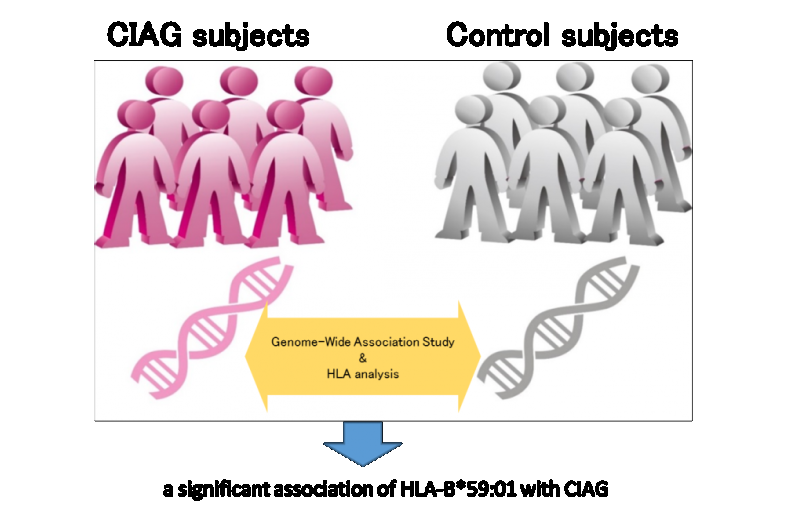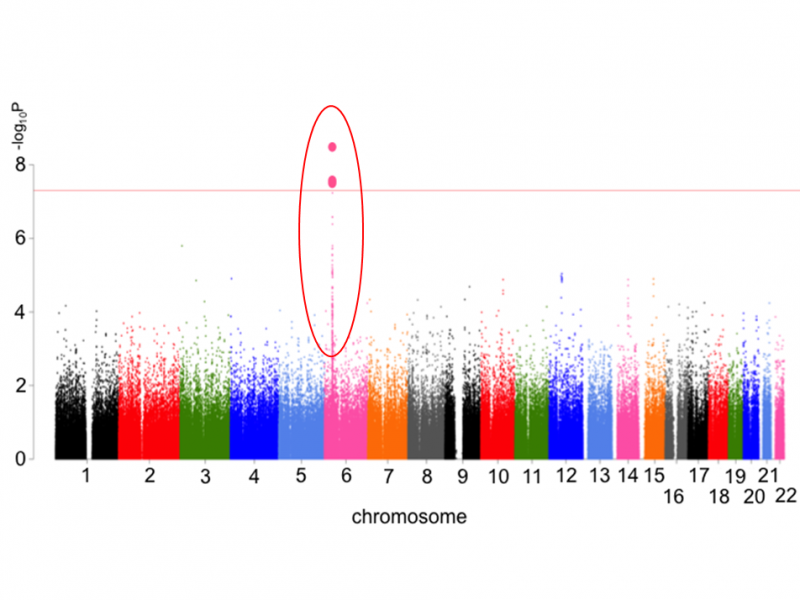Clozapine (CLZ) is a "gold standard" drug for managing treatment-resistant schizophrenia (TRS), who do not respond adequately to first-line antipsychotics.
Despite its efficacy with TRS, the use of CLZ is significantly restricted by severe side effects, such as Clozapine-induced agranulocytosis (CIA) or Clozapine-induced granulocytopenia (CIG), which are rare (CIA: 1% and CIG: 3%) but potentially life-threatening.
Ryota Hashimoto, an associate professor at Osaka University, Nakao Iwata, a professor at Fujita Health University, and Taisei Mushiroda, a group director at RIKEN conducted a genome-wide pharmacogenomic analysis and detected a significant association of HLA-B*59:01 with CIA/CIG (CIAG).
HLA-B*59:01 is one of the alleles of HLA-B gene, which is involved in recognition of 'self' and 'non-self' and induction of immune response. HLA- B*59:01 may be clinically useful as a marker to prioritize the CIG patients who have low risk to develop CIA, by accumulating scientific grounds through prospective clinical studies based on this group's research results. The analysis of functions of HLA-B*59:01 is also essential for the clarification of mechanism for CIAG.
Manhattan plot for the genome-wide pharmacogenomics results Red line indicates genome-wide significance (5 X 10-8). The Y axis is -log10(P-values) of the SNPs and the X axis is chromosomal position (hg19).
More information: Takeo Saito et al. Pharmacogenomic Study of Clozapine-Induced Agranulocytosis/Granulocytopenia in a Japanese Population, Biological Psychiatry (2016). DOI: 10.1016/j.biopsych.2015.12.006
Journal information: Biological Psychiatry
Provided by Osaka University























